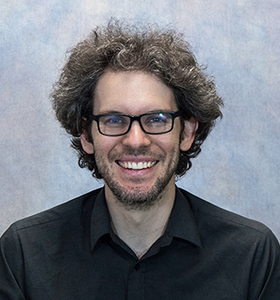Dr. Gabriel Maltais-Landry has joined the Soil and Water Sciences Department as an Assistant Professor, Sustainable Nutrient Management Systems. We asked him to share a little about his background and future plans.
Can you tell us a little about your road to UF?
 I started my academic training by completing a B.Sc. in Biology, focusing on aquatic and plant ecology at Université de Montréal, in Québec (Canada). I then completed a M.Sc. thesis at the same institution, working on nitrogen (N) cycling and greenhouse gas (GHG) emissions in constructed wetlands. After the M.Sc., I did a short internship in Mali, working on increasing the efficiency of wood stoves, preservation of harvested vegetables and fruits, and composting.
I started my academic training by completing a B.Sc. in Biology, focusing on aquatic and plant ecology at Université de Montréal, in Québec (Canada). I then completed a M.Sc. thesis at the same institution, working on nitrogen (N) cycling and greenhouse gas (GHG) emissions in constructed wetlands. After the M.Sc., I did a short internship in Mali, working on increasing the efficiency of wood stoves, preservation of harvested vegetables and fruits, and composting.
I started to work directly with soils during my Ph.D., focusing on the effects of cover crops on soil phosphorus (P) cycling for my thesis. Previous studies showed that legumes increased both nitrogen (N) and P availability in low-input farms established on tropical soils, but the P effects weren’t significant in intensive farming systems established on younger California soils. In contrast, using compost and manure to provide organic matter and N, respectively, resulted in significant P over-fertilization, risks of soil P saturation, and potential losses to surrounding ecosystems.
I continued to work on cover crops, composts and manures as a postdoctoral fellow at the University of British Columbia, focusing on N cycling and GHG emissions. The goal was to optimize certified organic vegetable production systems to minimize trade-offs among crop productivity, soil fertility and quality, and environmental impacts.
When the position in Sustainable Nutrient Management Systems opened, I was excited to see that it would allow me to work in a great institution in one of the most important and diverse agricultural states in the US, with great scientists and impressive infrastructure. So I jumped on the occasion, applied for the position, and was fortunate enough to get it. I am now looking forward to continue working on similar research questions and focus here in Florida.
What part of your research are you most proud of or excited about?
I think my research allows to ask and answer questions that improve our fundamental understanding of nutrient cycling in soils, while research outcomes can be applied directly in farming systems to have a positive impact on farmers and the environment. My research can also contribute to evidence-based decision-making. For example, my Ph.D. research showed that cover crops did not seem to have a major impact on soil P cycling in California. That doesn’t mean that they are unimportant, but they might not be the top strategy to implement in policies designed to manage P in the state.
What is your vision for your research and/or teaching programs?
I definitely want to continue working with cover crops, composts and manures, and expand the range of practices I investigate to include other cropping practices (e.g., intercropping) as well as other amendments (e.g., biosolids). I also want to increase the breadth of my research program by looking at other nutrients (including micronutrients), soil carbon, and soil quality, to make a more complete assessment of the performance of different farming systems.
I also plan to investigate how we could use non-legume N-fixers to provide N to agricultural systems and allow farmers to add N without relying on external inputs or including legumes too often in rotation. This is critical in vegetable production because we do not grow many legumes that are consumed as vegetables.
Finally, I’m interested in how diet shifts (e.g., more vegetarian diets) would impact nutrient cycling in agroecosystems, including the composition of composts and manures, the effects of their application on soil fertility and quality, and changes in crop yield and quality. There has been a lot of discussion about how more vegetarian diets are more energy-efficient, but much less emphasis on the feedbacks on nutrient cycling, and whether there could be negative impacts on soil fertility and quality.
What do you foresee as being the biggest challenge ahead?
Managing production systems with agroecological principles is often more complicated than using more conventional management, and this can affect crop productivity, farm profitability, and ultimately food availability for consumers. In addition, optimal management will vary depending on local conditions, and may vary from year-to-year depending on climate. Finally, there are trade-offs with any management practice, for example, a greater risk of damage from pests and pathogens when using manures and composts in vegetable systems. As a result, we need solid empirical evidence that shows that these systems are indeed productive and sustainable, which takes time to accumulate, as well as the willingness to change some of our current practices.
What motivates you most to go to work every day?
My hope is that my work will ultimately have a positive impact on our world, for both ecosystems and human welfare. Sustainable nutrient management is critical to achieve this in agricultural systems, to ensure farming operations are profitable, quality food is available to consumers, and ecosystems (both agricultural soils and surrounding ecosystems) remain healthy. Hopefully my work can contribute to achieving this goal in the near future.
 0
0
